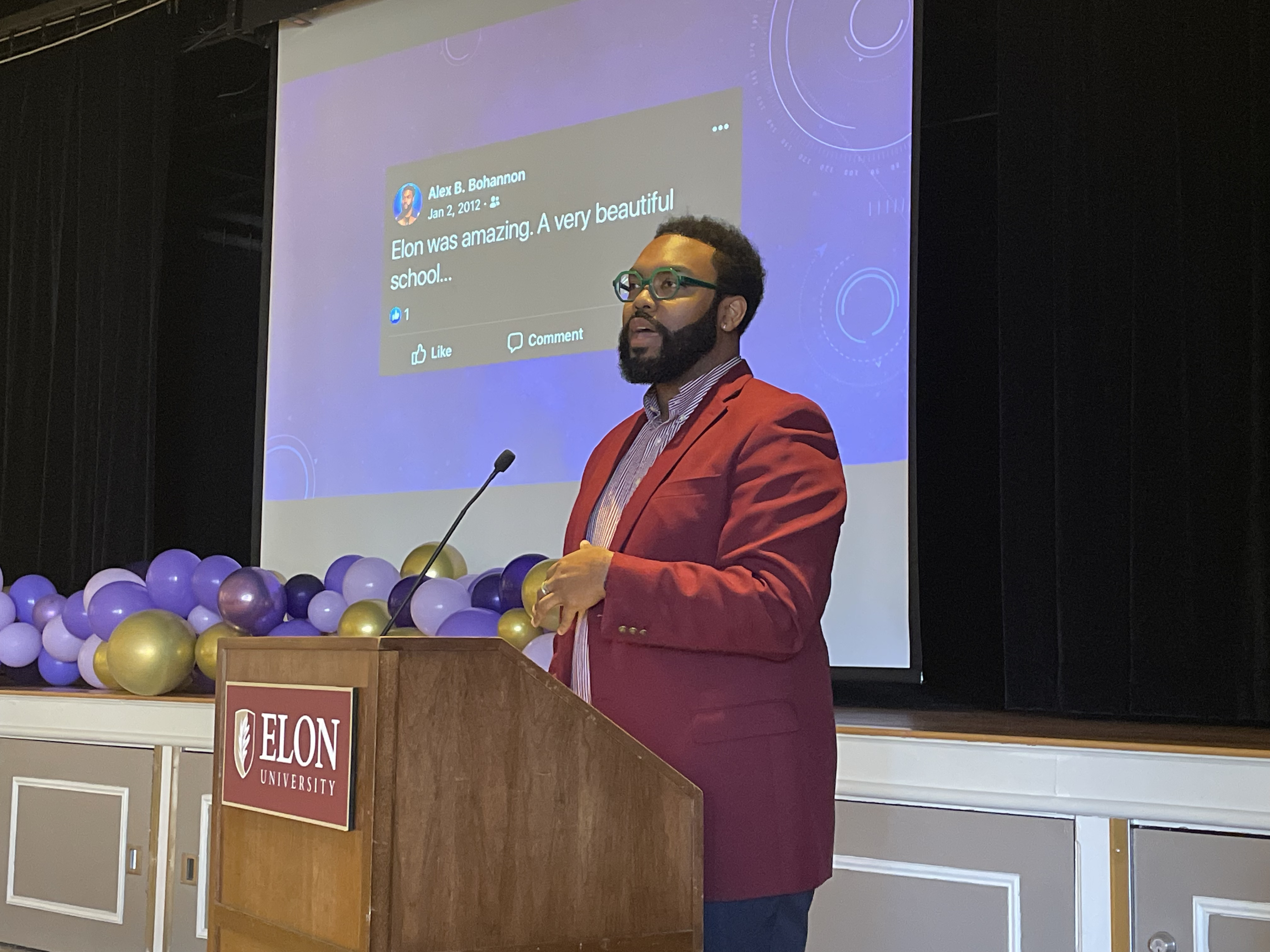Bohannon used his keynote address to focus on reflection and encourage students to revive, reclaim and rejoice.
“What I loved about Elon was Elon was always growing. There was this innate commitment to continuous improvement that I could even recognize as a high school senior. And I was like, ‘I want to be here,'” Alex Bohannon ’17 said during his keynote address at the Black Solidarity Conference, sharing how he chose to attend Elon University.
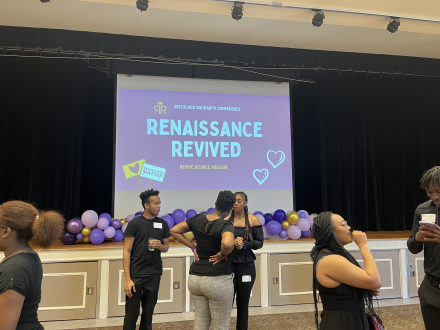
The Black Solidarity Conference is a one-day conference hosted by the Center for Race, Ethnicity and Diversity Education (CREDE) that aims to unite Black-identifying students, faculty and staff by providing an avenue through which Black identity, Black intersectionality and building solidarity are explored. This year’s conference continued the theme of Black History Month celebrations at Elon, ”The Black Renaissance: Revive, Reclaim, Rejoice,” emphasizing the importance of reviving the arts and Black culture.
The conference began with opening remarks from President Connie Ledoux Book during which she emphasized how the conference affirms and honors each person and sets the stage for where the university wants to go. Book continued by highlighting the work of the Elon Black Alumni Network and how members have been a part of Elon’s Black legacy and leadership.
“It is a powerful group of people who are so committed they see their Elon experience as truly transformative,” Book said. “They have been such a force for honoring the Black legacy here at Elon and … supporting current students.”
Bohannon is the founding president of the Black Student Union at Elon. In 2021, he became the youngest member of the Winston-Salem/Forsyth County Board of Education in its history and currently serves as vice chair.
Bohannon’s keynote address focused on his time at Elon and impactful experiences that were monumental in his personal and professional growth, showing pictures representing significant moments in his life. Additionally, he shared his experiences in how he entered his current position and provided words of wisdom to current students attending the conference.
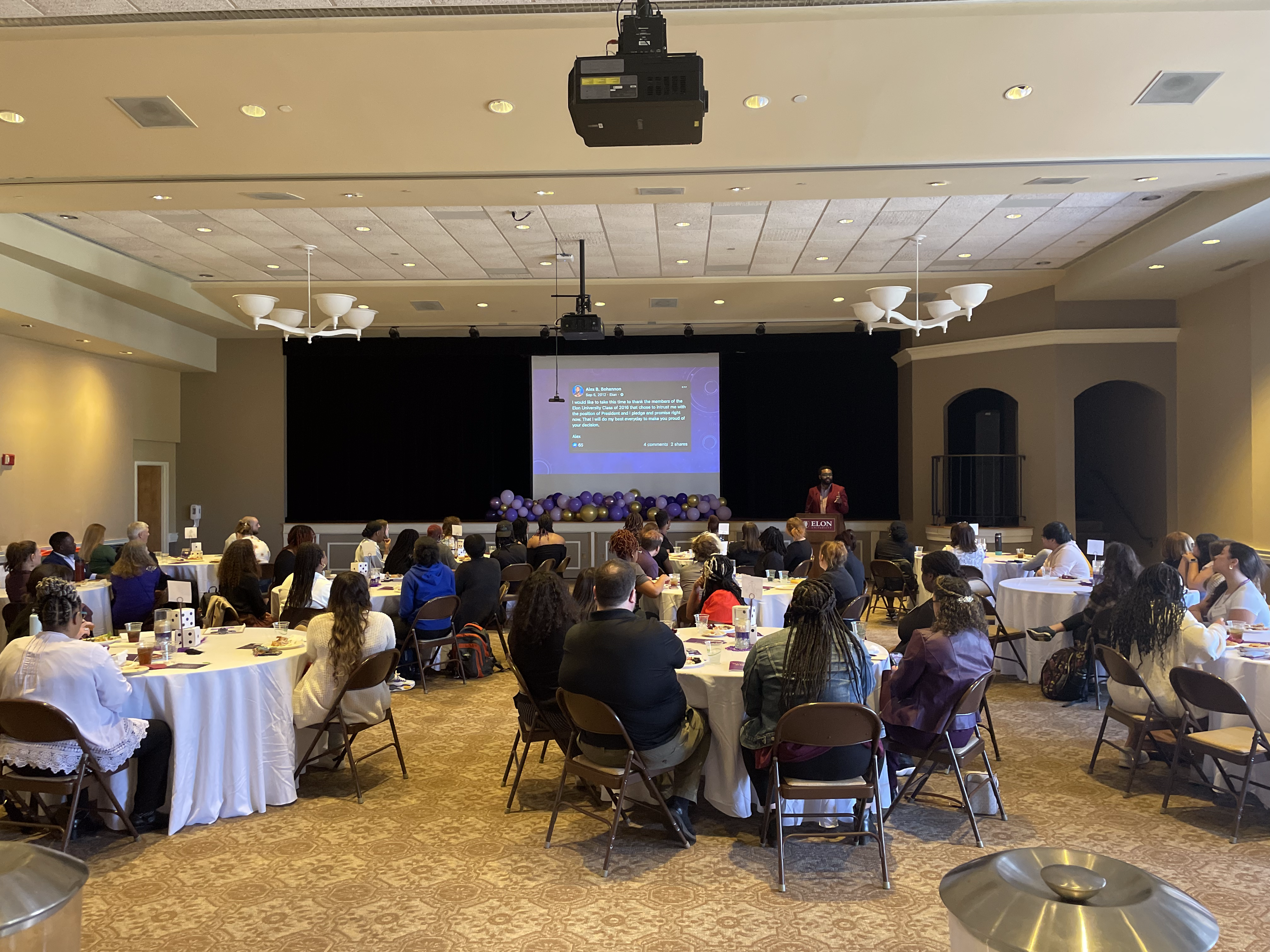
Bohannon opened by defining the conference’s sub-themes — revive, reclaim and rejoice. He continued by introducing himself, showing a picture of himself that was iconically a picture of him, holding a photo of himself when he was younger. “It reminded me of just time and the fact that I’m 28 years old. That picture was taken when I was three or four years old. And just the amount of knowledge, the amount of wisdom that comes when you live,” said Bohannon.
He reflected that although he is relatively young, he still has many experiences. He encouraged students to take time to reflect on their own experiences. “I really do believe that in order to know where you’re going, you need to understand where you have been,” Bohannon said.
Putting his advice to reflect into practice, he took the audience on a journey from his past to his present. Using photos and storytelling, Bohannon shared experiences from his first impressions of Elon to his graduation. Each experience provided a piece to the puzzle of his journey of reflection throughout his tenure at Elon. Two impactful stories of his journey with the audience included his study abroad trip to London and his return.
Bohannon stated that he was overly involved during his sophomore year and said that he had to take a pause. “Sometimes life has a way of communicating to you that you need to slow down and you need to do something different,” Bohannon said.
To take this pause, he decided to study aboard. “I was going to use that time away to really reflect on what my purpose was, what I wanted to spend the rest of my time at Elon doing,” Bohannon said.
Before departing for London, he resigned as class president, stating, “I really don’t think that I’m in the best place to function in that role. I kind of took a reset, which I think sometimes we all should not be afraid to do,” Bohannon said.
He shared his study abroad experience in London, stating that it was one of the highlights of his life. “It was immaculate not just the experience itself, but the impact it had on my life. My priorities. My desire to really make a good contribution to the institution,” said Bohannon.
Upon his return, he stated that there were several incidences of bias. One situation in particular that he shared was a student protection incident that involved two students, one Black-identifying and the other Jewish-identifying, where someone drew a swastika and “KKK” on the whiteboard outside their door. In response, senior leadership met with student organizations to address the needs of the students, including the Black Cultural Society, of which Bohannon was a member of the executive board. However, the organization had been inactive, and many Black-identifying students did not feel that the organization could speak on their behalf.
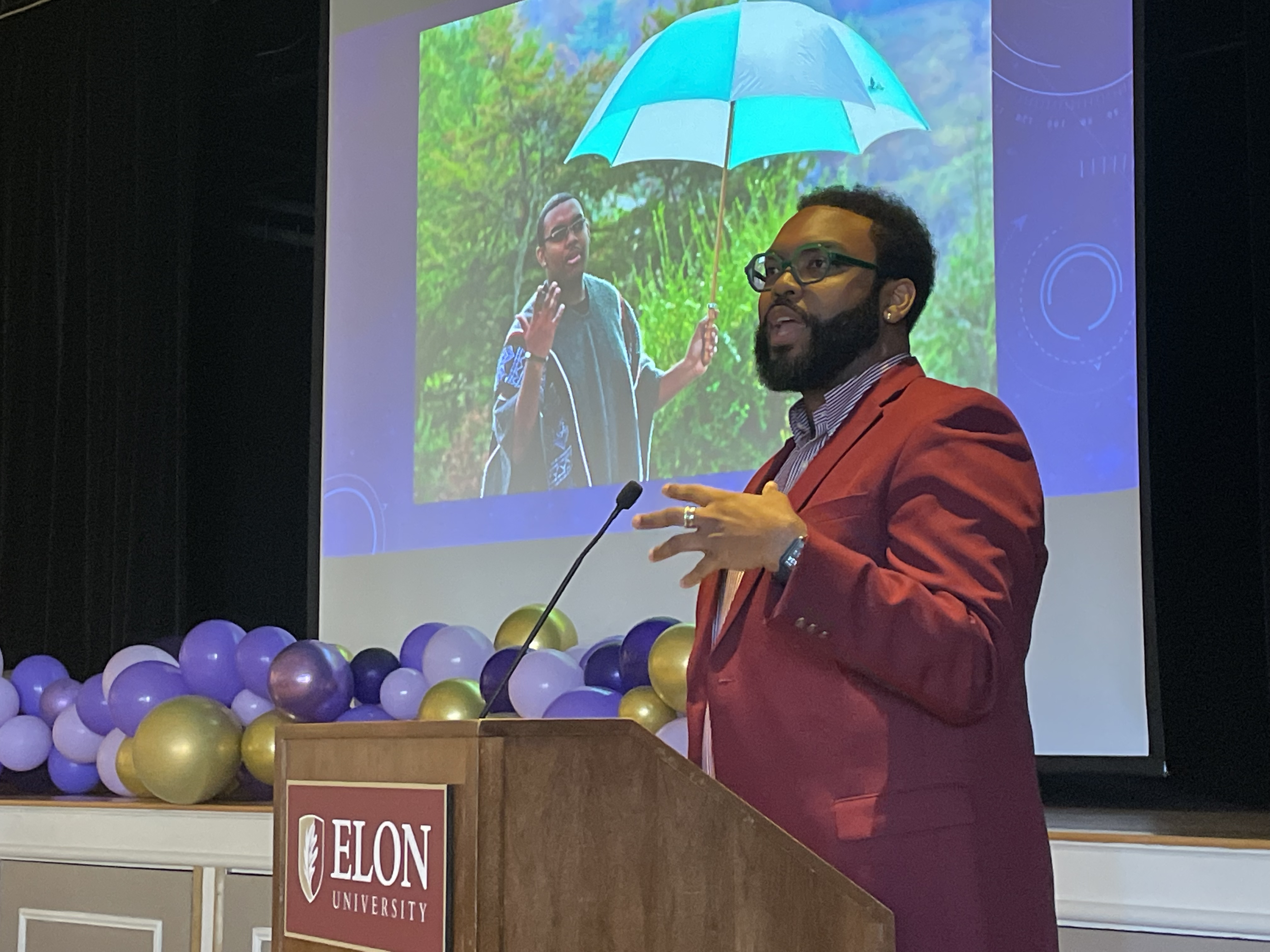
“That really caused me to kind of think that we can’t presume to speak on behalf of a population that we have not been active with. And at that time, the perception was so bad that I thought we needed l to do a reset,” Bohannon said.
Bohannon initiated this reset by having the Black Cultural Society host events, including a fashion show that the organization had historically hosted. Bohannon stated that he wanted the fashion show to make a statement. “It really presented an opportunity for students to be able to be engaged in something fun, but also elevating the profile of BSC. And we accomplished that but that wasn’t enough,” Bohannon said.
Bohannon continued helping the Black Cultural Society elevate, which led to a rebrand of the organization. He stated he knew it would take time to develop the rebrand and therefore advocated to the director of the CREDE for a paid summer job, saying that “the impact of this organization is going to have a lasting impact on the institution. And so that’s going to take time to rewrite constitutions and look at our structure. And so she was able to hire me on within the center for a limited amount of hours during the summer so that I could work … and create what you know now as BSU [Black Student Union],” Bohannon said.
Bohannon also shared the experiences from his senior year, including the impact of a car accident. Due to injuries from the accident, he extended his time at Elon and graduated the following year. However, he emphasized that he completed his “super senior year” due to overwhelming support.
”We always think about support in terms of what we received from someone else as opposed to internally, us developing the capacity to support ourselves. And I spent that year really trying to be intentional about that. Really trying to be targeted to focus on what was next,” Bohannon said.
Bohannon followed with a discussion of how he came into his current position and his introduction to the Winston-Salem Forsyth County School Board by a colleague working part-time at Boys and Girls Club. Not immediately pursuing an interest in the school board, he went to Elon Law. However, he did not complete law school due to the demands of caring for a family member. After leaving, he received his current job with the City of Winston-Salem working in human resources.
Additionally, a vacancy opened up on the board of education and which he pursued and gained, becoming the youngest school board member in the history of the Winston-Salem/Forsyth County School System.
“The reason why that’s important is because there was no school board member at the time who had attended school in the 21st century,” Bohannon said, who is currently in his second term in the position.
Bohannon concluded his experiences with words of encouragement to students. “What I would say to you is to lean into life into your journey. Don’t not have a plan but open yourself up to the possibility that you may be redirected elsewhere,” Bohannon said.
Bohannon closed his address similar to how he began, revisiting the conference’s themes and encouraging the audience to revive by being intentional about understanding that the lowest is temporary; to reclaim their confidence or belief in something; and rejoice in their accomplishments no matter how big or small.
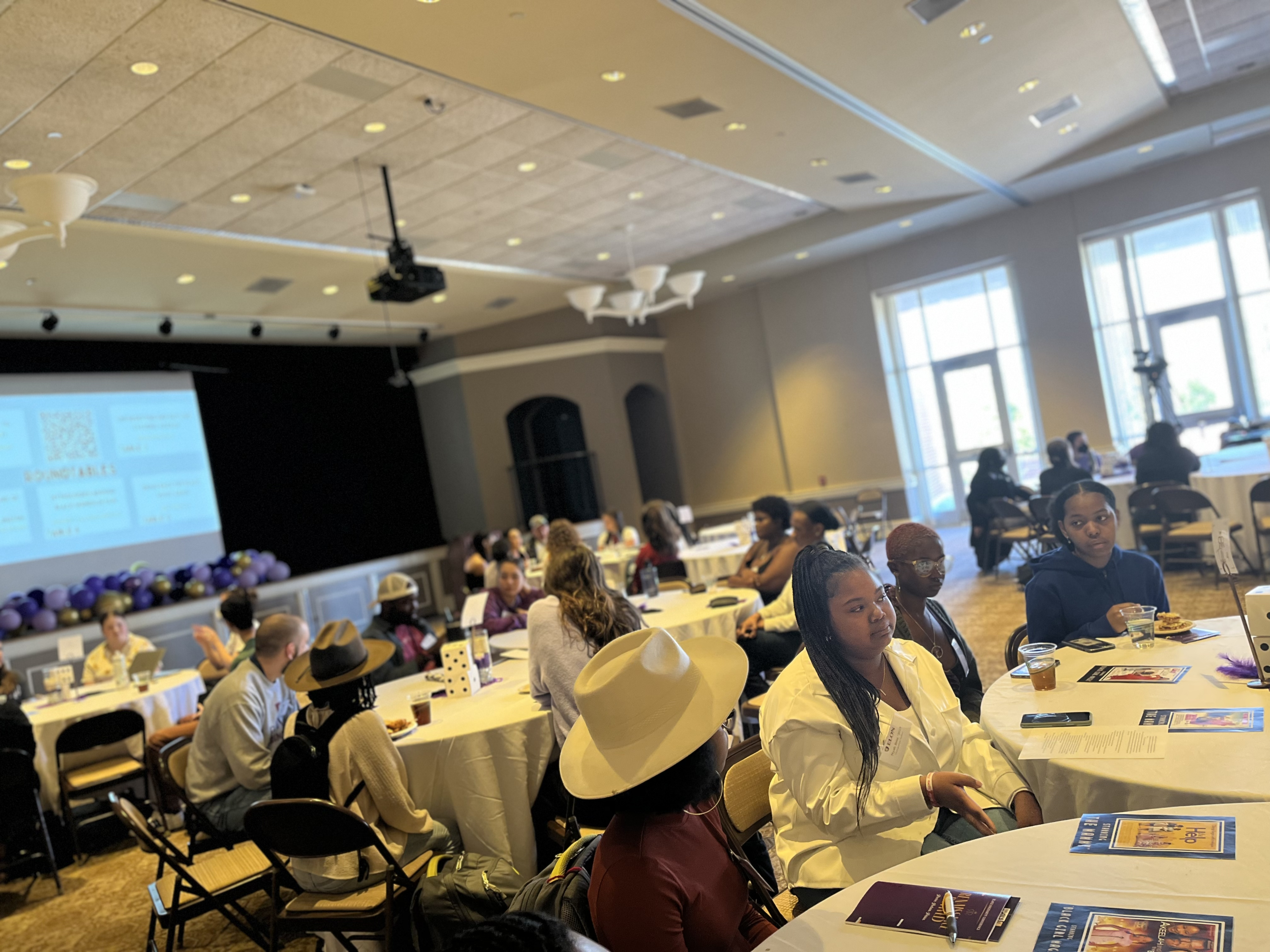
After the keynote address, attendees participated in roundtable discussions and educational sessions that included “White Ally Actions to Support Black Joy,” “Unforgetting and Battling Systemic Silence,” “Legacies and Future of Black Resilience in Burlington,” “Mythologies Around Black Women in Film,” and “Bring Back the Black Music Again.”
“Overall, the conference provided insight and empowerment to students. I had an amazing time to not only be present with Black people but to really reflect and analyze what not only what it means to be Black but how to progress as Black people,” Zeth Dixon ‘24 said.
Kortiney White ’23 related to the wisdom Bohannon shared in his keynote address saying, “His sentiments of just being you and doing things that you want and not what you’re supposed to do. I probably needed to hear that because I tend to also fall into the same habit he did [of doing] what you’re supposed to do.”
The conference concluded with mocktails and entertainment of student performances and a New Orleans Line Band.



